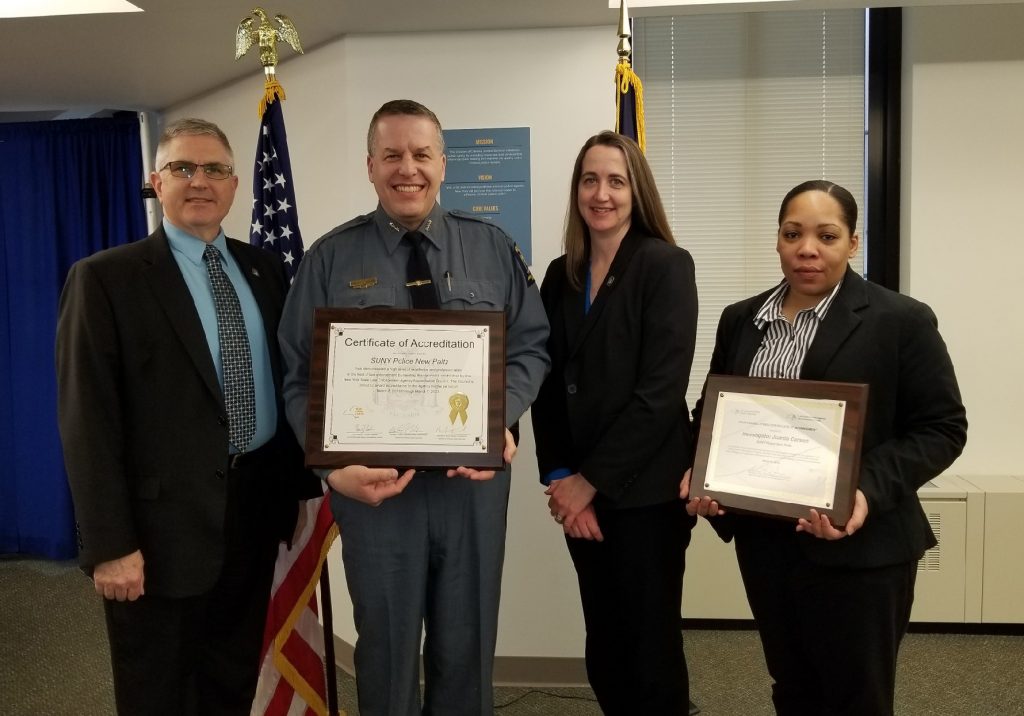 Members of the SUNY New Paltz University Police Department (UPD) traveled to the state capital of Albany, N.Y., on April 2 for a ceremony recognizing the UPD’s accreditation by the New York State Division of Criminal Justice Services.
Members of the SUNY New Paltz University Police Department (UPD) traveled to the state capital of Albany, N.Y., on April 2 for a ceremony recognizing the UPD’s accreditation by the New York State Division of Criminal Justice Services.
“This is a project that has been five years in making and has received support from the officers, their union and the College administration,” said UPD Chief David Dugatkin. “Receiving accreditation from the state acknowledges the department’s commitment to the community they serve as well as reaching the gold standard in community policing. I couldn’t be more proud of the men and women of this department who have worked alongside us on this challenging journey.”
The New Paltz Police Department (NPPD) also received accreditation, joining with partners from the UPD in being recognized for meeting the high standards set by the Division of Criminal Justice Services.
The two departments enjoy a deeply rooted collaboration, which was a factor in fulfilling the accreditation requirements.
The Town and University police forces have had a Memorandum of Understanding in place since 1999. The Memorandum establishes fundamental parameters of their partnership, including by outlining a process for Town of New Paltz officers to notify the College administration anytime a student is arrested; setting out conditions for when one agency might be called on to assist the other; and establishing regular radio communication between UPD, NPPD, the New Paltz Fire Department, the New Paltz Rescue Squad and Ulster County 911 Services.
Visit the University Police Department online to learn more.
About NYS Division of Criminal Justice Services accreditation
The New York State law enforcement accreditation process was established in 1989 and encompasses four principle goals:
- To increase the effectiveness and efficiency of law enforcement agencies utilizing existing personnel, equipment and facilities to the extent possible;
- To promote increased cooperation and coordination among law enforcement agencies and other agencies of the criminal justice services;
- To ensure the appropriate training of law enforcement personnel; and
- To promote public confidence in law enforcement agencies.
The accreditation process calls on agencies to implement effective policies and practices across three categories: training, which covers both basic instruction and specialized supervisory development; operations, which includes handling of critical events as well as regular patrols and other more common circumstances; and administration, which captures a department’s records and fiscal management, agency organization and personnel practices.
Visit the Division of Criminal Justice Services online for additional information.

